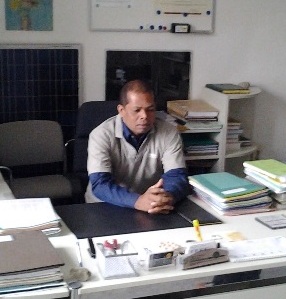The Role of Language and its Analysis in James Joyce`s Dubliners within the Light of Cultural Materialism
Abstract
Keywords
Full Text:
PDFReferences
Abrams, M. H. A Glossary of Literary Terms. New York: Harcourt Brace Pub, 1993. Barker, Chris. Cultural Studies: Theory and Practice. London: Sage publication Inc, 2004.
Barler, Chris. Sage Dictionary of Cultural Studies. London: Sage Pub Inc, 2003.
Bei, Xu. On Reproducing Literary Style of Dubliners in Chinese, a Thesis, Shanghai International Studies University, November, 2008.
Bulson, Eric. The Cambridge Introduction to James Joyce. Cambridge: Cambridge Press, 2006.
C. E. Bressler. Literary Criticism: An Introduction to Theory and Practice. The USA: PearsonPrentice Hall, 2007.
Claire, Kilroy. An Introduction to today’s Irish Novelists. Dublin: Ireland Literature Exchange, 2010.
Daronkolahee, Esmaeel Najar. James Joyce's Usage of Diction in Representation of Irish Society in Dubliners: the Analysis of “The Sisters” and “The Dead” in Historical Context, The Journal of International Social Research Volume: 5 Issue: 23, Fall 2012. PP. 169-174.
DeVault, Christopher M., Love and Socialism in Joyce's "A Painful Case": A Buberian Reading, TCD library electronicdatabase, 2013.
Fargnoli, Nicholas A. and Gillespie, Michael P., Critical Companion to James Joyce: A Literary Reference to His Life andWork, Infobase Publishing, New York 2006.
Freese, Lee and Burke, Peter J. Persons, Identities, and Social Interaction, Department of Sociology, Washington State University. Advances in Group Processes, Vol.11. Greenwich, Conn.: JAI Press.
Greenblatt, Stephen. Culture in Critical Terms for Literary Studies. London: Faber and Faber, 2012
Harris, Marvin. Cultural Materialism: the Struggle for a Science of Culture, Walnut Creek, California: AltaMira Press, 2001.
(https://www.google.com/search?q=Harris,+Marvin.+Cultural+Materialism)
Hamlin, Madeleine. Geographies of Mobility in James Joyce’sDubliners, Literary Geographies, Vol.2, No. 2, Syracuse University, 2016. PP. 128-143.
Harris, Marvin. The Rise of Anthropological Theory: A History of Theories of Culture, Walnut Creek, California: Alta Mira Press, 2001.
Howard, J. The new historicism in renaissance studies, in new historicism and renaissance drama, eds. Richard Dutton and Richard Wilson. London: Longman, 1992.
Joyce, James. Dubliners: Authoritative Text, Contexts, Criticism. Ed. Margot Norris. New York: W.W. Norton, 2006.
J. Giles and T. Middleton. Studying Culture: A Practical Introduction. The USA: Wiley, 2008.
Kearney, Martin F., Robert Emmet's Rising of 1803 and the Bold Mrs. Kearney: James Joyce's 'A Mother' as Historical.London.1981.
Kiberd, Declan. Inventing Ireland. London: Random House, 1995. Print.
Inglis, Tom.Local .Belonging, Identities and Sense of Place in Contemporary Ireland, in the Discussion Series: Politics and Identity No. 4, Institute for British-Irish Studies University, College Dublin, 2005.
Kuznar, Lawrence A. and Sanderson, Stephen K. “Marvin Harris’s CulturalMaterialism and Its Legacy”, Boulder, London: Paradigm Publishers, 2007.
Lozowski, Przemyslaw and Jarosz, Izabela. In Search of Cultural and Personal Experience behind woman in James Joyce’s Dubliner , Artes Humanae, Vol. 1, 2016. PP. 157-174.
Milner, Andrew. Re-imagining Cultural Studies: The Promise of Cultural Materialism, London: SAGE Publications Ltd, 2002.
Moore, Jerry D. Marvin Harris. Cultural Materialism, Visions of Culture: An Introduction to Anthropological Theories and Theorists (2nd ed.), Walnut Creek, CA: AltaMira Press, 2004. pp. 203–215.
M. J. Smith. Culture: Reinventing the Social Sciences. Philadelphia: Open University Press, 2000.
Nazarieh, Mehrdad. James Joyce Dubliners: How Religion Influences Conscience, The Clarion: International Multidisciplinary Journal, Volume 5, 2016. PP 102-106.
Norris, M. Suspicious Reading of Joyce’s Dubliners. Philadelphia: University of Pensylvania Press, 2003
Pereira, Vijay and Malik, Ashish. The Identities of Emerging and Developed Multinational Corporations and their effect on business and society, Journal of Race, Culture and Identity. Australia.
Prendergast, Christopher. Cultural Materialism: On Raymond Williams, Volume 9. London, Minneapolis: University of Minnesota Press, 1995.
Roughley, Alan. James Joyce And Critical Theory: An Introduction. Ann Arbor: University of Michigan, 1991.
Shrum, L. J., et al., Reconceptualizing materialism as identity goal pursuits: Functions, processes, and consequences, Journal of Business Research, 2012.
Suzuki, Talashi, Epiphanies in Dubliners, P 75-81.
Taglieri, Gina. 1996. James Joyce’s Dubliners. United States of America: University of New York
Ward, Todd. A. Raymond Eastman, & Chris Ninness, An Experimental Analysis of Cultural Materialism: The Effects of Various Modes of Production on Resource Sharing Behavior and Social Issues, 18, 2009. PP. 58–80.
Williams, R. Marxism and literature. New York: Oxford University Press,1977.
Williams, Trevor L. Resistance to Paralysis in Dubliners, MFS Modern Fiction Studies Project MUSE. Web. 05 Mar. 2013.
DOI: https://doi.org/10.33258/birle.v2i2.272
Article Metrics
Abstract view : 1366 timesPDF - 260 times
Refbacks
- There are currently no refbacks.

This work is licensed under a Creative Commons Attribution-ShareAlike 4.0 International License.

This work is licensed under a Creative Commons Attribution-ShareAlike 4.0 International License

_.gif)




















_.gif)



